I was halfway through the umpteenth draft of What Big Teeth, my novel about a manor-dwelling monster family, before I finally read We Have Always Lived in the Castle. I still haven’t finished Frankenstein. I am, in many ways, a very poorly-read horror reader. But while I’ve missed out on some of the classics, my time in my MFA program and my own peculiar tastes have led me to some works that might not be on the horror classics lists. I’ve often found these books by looking for earlier or later works by an author I’ve just read, or by following my own longing for a book that resolves something I didn’t enjoy about a more famous book.
So if you’ve read all the traditional favorites, here are some works that you might have missed. With some of these, I had to verify that they were still available for sale. Some are only just recently in print. But all of them are a little strange and twisty in a way I think you’ll really enjoy.
If you finished Dracula and found yourself wishing it were queerer, try A Dowry of Blood by S.T. Gibson.
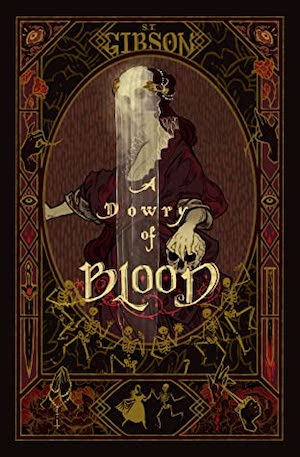
Dracula is of course full of queer potential, but sadly, Lucy Westenra’s desire to have three husbands goes largely unexplored on the page. S.T. Gibson’s new novella, A Dowry of Blood, responds to the latent queerness of the original with a page-turning, heartbreaking retelling of the lives of Dracula’s brides. Told from the perspective of Constanta, Dracula’s eldest wife, the book follows her journey through Europe at his side. Centuries pass in a blur in this haunting retelling that features queer romance, abuse, the ennui of undeath, and the ghosts of intergenerational trauma as Constanta’s immortal beloved becomes increasingly paranoid and controlling. If you liked Dracula for its own sake—for the epistolary style, the obsession with train tables, the 19th century prose—know that this book has a decidedly different feel to it. It’s not a book about humans confronting monsters; it’s about monsters reckoning with their own monstrousness. But if you love psychological horror and the terrors of the human heart, you’ll sink right into A Dowry of Blood and not come up until the last page.
If you like eldritch horror but can’t stand H.P. Lovecraft, try Ring Shout by P. Djèlí Clark.
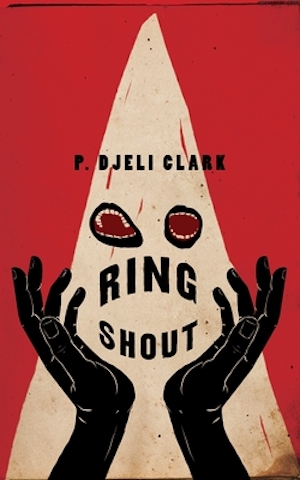
Steeped in history and taking full delight in Black southern folklore, Ring Shout is reminiscent of, but far exceeds, both the works of Lovecraft and the novel Lovecraft Country by Matt Ruff. Ring Shout is a confident work; Clark introduces brilliant scenes and characters with the air of someone who knows there’s more where that came from. Every character in Ring Shout could easily have their own work of the same length (the Choctaw scientists! The fox-women! The communist folklore scholar! The butch WWI veteran!) The book hurls us past all of these ideas and straight into the heart of evil. My only complaint, if it can be called one, is that Ring Shout doesn’t give us time to linger with these characters—the book could be twice as long and still feel well-paced. Maybe, like Lovecraft Country, it needs a spinoff TV show so that we can spend a little more time in this perfectly crafted world.
If you liked Daphne Du Maurier’s Rebecca but wish it had been more critical of toxic masculinity, try My Cousin Rachel, by the same author.
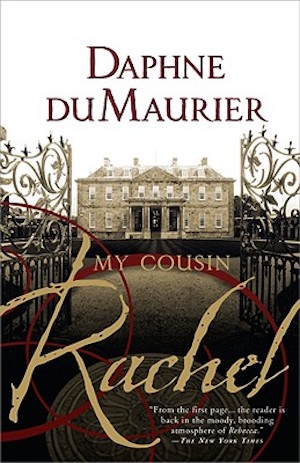
Du Maurier’s lesser-known novel opens with a little boy being taken by his much-older cousin Ambrose to see a hanging, and his determination not to show fear or weakness sets the tone for the rest of the story. Philip grows up adoring his bachelor cousin, who raises him after the death of his parents. Philip is shocked when he learns that Ambrose has died while vacationing in Italy, and receives a series of fevered letters in which Ambrose says that Rachel, his new wife, is trying to poison him for his money. Philip plans to confront Rachel when she comes to England, but instead quickly becomes enamored with her—an infatuation that is only made stronger as they reminisce about their love of Ambrose. However, Philip soon begins to worry that Rachel may be trying to murder him as well, and the tension between his lust and paranoia keeps the reader guessing feverishly whether Philip or Rachel is the predator in their deadly dance. Du Maurier masterfully executes the point of view of a young man not suited to being domineering and uncaring, but trying his damndest to learn.
If you liked Geek Love by Katherine Dunn but were like “this isn’t as gory or sexually disturbing as I’d like actually”, try Kassandra and the Wolf by Margarita Karapanou.
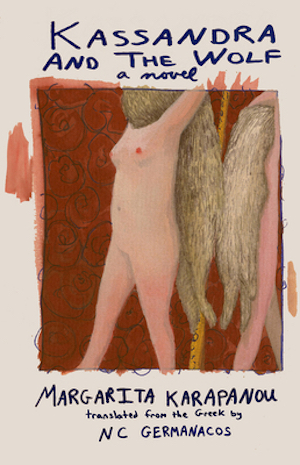
I don’t know how to classify this strange little volume by Margarita Kapanou. Is it a novel? A series of short stories? Is this little girl a budding murderer or does she just like cutting up her dolls? Is the chapter about the butcher an accounting of sexual violence through the eyes of a child, or a childish fantasy? If you read Katherine Dunn’s Geek Love and were readily immersed in the world of the Binewski family, with its self-created carnival freaks, amputation cults, incest, and murder, you might be able to stomach Kassandra and the Wolf. I don’t know if I can exactly recommend it, except that I was drawn in by the wonderful prose, which perfectly captures a childlike way of thinking: a blurring of imagination and reality, a fascination with all things gruesome, and a casual transit between horror and the mundane. The chapter where Kassandra gets a kitten is the saddest, most frightening thing I have ever read in my life, to the point where I don’t even want to open my copy of the book to identify the chapter name. If you want to read something that takes you to the edges of pain and disgust, while still being beautiful, this might be the book for you. Proceed with caution.
If you devoured The Bloody Chamber by Angela Carter and you’ve already read Her Body and Other Parties by Carmen Maria Machado, try From the Dust Returned by Ray Bradbury.
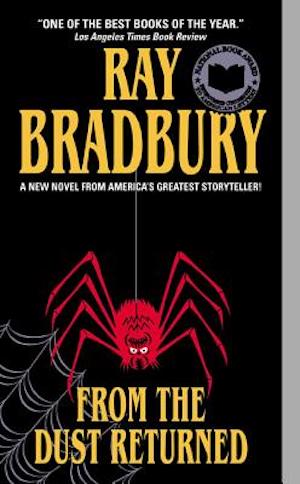
If you enjoy Carmen Maria Machado’s terse eloquence and her exploration of scary stories and urban legends, you’ve probably also reveled in Angela Carter’s short stories. In Black Venus, her star story is “The Fall River Axe Murders”, in which she gives us a slow, sensual tour of the early hours of the morning in Lizzie Borden’s house on the day that she is going to kill her family. Much like Machado’s “The Husband Stitch”, this retelling uses a story we think we know already to hold us in suspense and show us things that we might not expect. But both of these are, I think, relatively well-known compared to Ray Bradbury’s strange novel From The Dust Returned. Assembled piecemeal from short stories written throughout his career, Dust is less well-known than his other horror hit, Something Wicked This Way Comes. Like Machado and Carter, Bradbury relishes in the particulars. From the Dust Returned dwells in longing, in nostalgia, in strangeness. The short story “The April Witch” features a girl astral projecting herself into another young woman’s body to experience sex for the first time, and the tension between her and her host is both beautiful and chilling. Dust is slow and unconcerned with resolutions, so readers who want a climactic ending may find themselves frustrated. But if you want to sink into a mood and live there for a little while, it’s the perfect read for such an escape.
Originally published February 2021.
Buy the Book
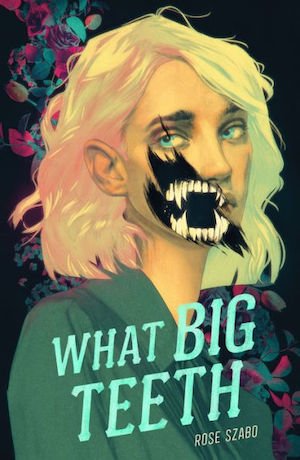

What Big Teeth
Rose Szabo is a queer writer from Richmond, Virginia who is bsessed with horror, tabletop games, and material culture, particularly fashion. Their first novel, What Big Teeth, is about family secrets and werewolves.










